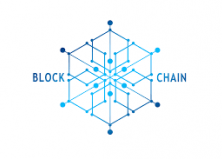2022
Special Session on Recent Advances in B5G/6G Wireless Communications
Fifth-generation (5G) wireless networks have been rolled out worldwide. However, the current 5G still cannot meet many demands of future wireless systems such as exceptionally high connectivity, ultra-low latencies, super-dense network, high security, and high energy efficiency.
In addition, the historical evolution of mobile networks has witnessed a new generation about every decade. Therefore, now is the right time to investigate advanced technologies beyond 5G (B5G) and toward 6G wireless communication systems. It has been envisioned that integrating sensing, new multi-access techniques, holographic massive MIMO, cell-free massive MIMO, large intelligent surfaces, THz communications, machine learning and artificial intelligence-based techniques are potential technologies for B5G/6G. These are very new technologies where a number of issues and questions still need to be tackled before rolling out them into practice. The convergence of these advanced techniques will potentially pave the way for the evolution B5G/6G systems.
This special issue aims to bring together academic and industrial researchers to explore recent advances in B5G/6G wireless networks. Topics of interest include, but are not limited to the following:
- Cellular/cell-free massive MIMO and holographic massive MIMO
- MmWave and THz MIMO communications
- Resource allocation and performance analysis
- Energy harvesting and wireless power transfer
- New multi-access and modulation (NOMA, OTFS, SCMA, etc.)
- B5G/6G-aided Internet-of-Things (IoT)
- Ultra-high reliability and low-latency communications (URLLC)
- Coverage enhancement based on reconfigurable intelligent surfaces, backscatter communication systems
- Interference avoidance, management, and cancellation techniques
- New communications and networks technologies, such as visible light communication (VLC), optical networks,
- Space-terrestrial communications such as aerial access networks, and satellite communications
- Mobile edge/fog computing
- Wireless spectrum sensing, localization, and signal processing
- AI-based techniques, machine learning and deep learning for B5G/6G
- Security and privacy issues in B5G/6G communications
- Testbed, software, and platforms design for supporting B5G/6G networks.
Session Co-chairs:
- Dr. Hien Quoc Ngo (Queen's University Belfast)
- Tien Hoa Nguyen (HUST, Vietnam)
- Hien Ta (International University – Vietnam National University)
TPC members:
- Van Chien Trinh (HUST, Vietnam)
- Lam Thanh Tu (Ton Duc Thang University)
- Nguyen Tien Tung (Industrial University of Ho Chi Minh City)
- Nguyen Quang Sang (Ho Chi Minh City University of Transport)
- Dr. Soonghwan Ro (Kongju National University, Korea)
- Dr. Matthias Paetzold (University of Agder, Grimstad, Norway)
- Dr. Kyamakya, Kyandoghere (University Klagenfurt, Austria)
Contact: Dr. Tien Hoa Nguyen (Email: hoa.nguyentien@hust.edu.vn)
Submission link: https://edas.info/N29314
IMPORTANT DATES
|
Regular/special paper submission: Manuscript submission: May 31, 2022 Notification of acceptance: July 15, 2022 Camera-ready submission: August 15. 2022 |
July 30, 2022 August 15. 2022 |
August 20, 2022 September 10, 2022 |
|
Proposal submission for Special Sessions: April 30, 2022 |


